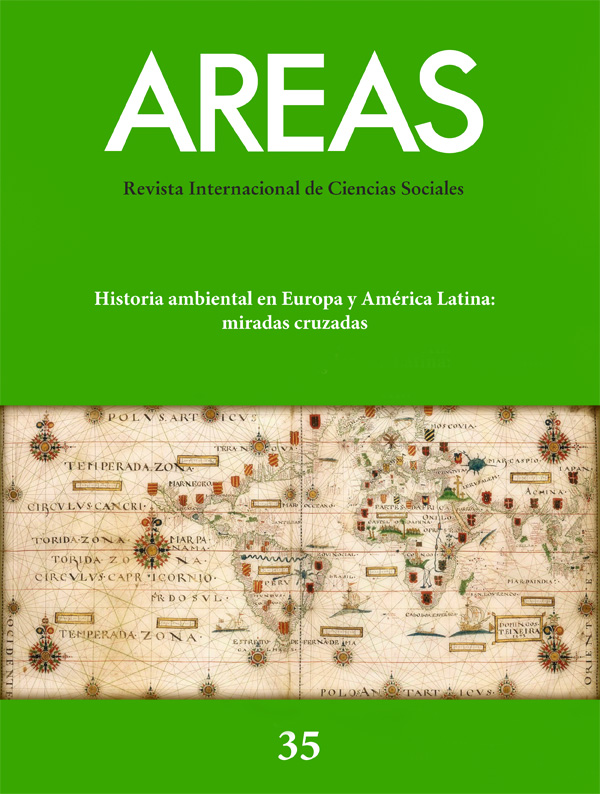Mirando desde el futuro. Diálogos y Saberes Ambientales en el contexto español
Resumen
Con este texto se propone una mirada crítica a la epistemología de la historia ambiental española desarrollada en los dos últimos decenios. Realizamos una mirada general sobre las principales tendencias de investigación, prestando atención al nacimiento de esta disciplina desde el campo de la historia agraria en los años 80. Desde ahí la atención al manejo de bienes comunes, a los conflictos socioambientales y a los estudios sobre metabolismo social han sido los ejes sobre los que se ha construido esta disciplina. El estudio de la historia ambiental ha supuesto un abordaje interdisciplinar de la relación coevolutiva entre sociedades humanas y medio ambiente. Este enfoque ha tenido en el caso de los estudios para España un devenir desde la historia agraria que generó objetos de estudios vinculados a la transformación de los sistemas de propiedad de recursos naturales, cambios la gestión de los mismos en el mundo contemporáneo y una creciente atención a los conflictos ambientales surgidos de estos cambios. No pretende este artículo, ni lo podría, ser un exhaustivo repaso a la historia agraria española, sino sólo una mirada al entronque ambiental que emergió de la mirada seminal de la historia agraria, nacida al albur de los años 80. Deforestación, impacto de los procesos extractivos de biomasa, extracción de capital natural dentro de un modelo capitalista global son apuntes que subyacen en una mirada al territorio que busca las continuidades y discontinuidades entre el período contemporáneo.
Descargas
-
Resumen377
-
PDF277
Las obras que se publican en esta revista están sujetas a los siguientes términos:
1. El Servicio de Publicaciones de la Universidad de Murcia (la editorial) conserva los derechos patrimoniales (copyright) de las obras publicadas, y favorece y permite la reutilización de las mismas bajo la licencia de uso indicada en el punto 2.
2. Las obras se publican en la edición electrónica de la revista bajo una licencia Creative Commons Reconocimiento-NoComercial-SinObraDerivada 3.0 España (texto legal). Se pueden copiar, usar, difundir, transmitir y exponer públicamente, siempre que: i) se cite la autoría y la fuente original de su publicación (revista, editorial y URL de la obra); ii) no se usen para fines comerciales; iii) se mencione la existencia y especificaciones de esta licencia de uso.
3. Condiciones de auto-archivo. Se permite y se anima a los autores a difundir electrónicamente las versiones pre-print (versión antes de ser evaluada) y/o post-print (versión evaluada y aceptada para su publicación) de sus obras antes de su publicación, ya que favorece su circulación y difusión más temprana y con ello un posible aumento en su citación y alcance entre la comunidad académica. Color RoMEO: verde.






